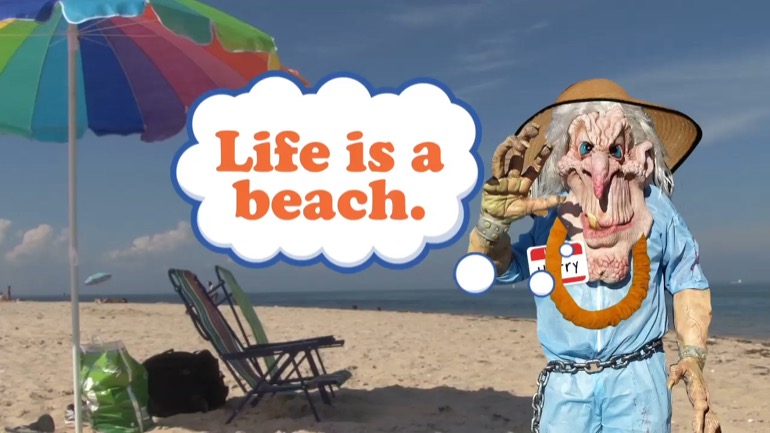When you buy an option, you can pick from a range of strike prices and a range of expiration dates. It's like picking the toppings on a pizza. You can mix 'n' match however you like.
Each option comes with a measurable amount of implied volatility. A volatility smile applies to options with the same expiration date but different strike prices. It relates to the shape made by graphing the implied volatility. The measure gets higher the further away the strike price gets from the current trading price for an asset. If a stock is trading at $20, implied volatility for the $20 strike price will be low. However, the further away from the current price you go (in either direction), the higher implied volatility gets.
So...with the stock trading at $20, the $15 strike price will have higher volatility than the $18 strike price. Meanwhile, the $25 strike price will have higher implied volatility than the $22 strike price. And $18 and $22 strike prices will have similar implied volatility.
The implied volatility here applies to the options themselves, rather than the underlying asset (like a stock). The prices for the options themselves are more likely to move around; that's because demand is higher for options further in-the-money or further out-of-the-money than it is for options closer to the at-the-money level.
Graph the IV for all strike prices for the same underlying asset and the same expiration date, and the graph will look like a smile. It's not true for all options, but it does hold for most. This situation comes as options show high levels of implied volatility for both extreme in-the-money options and extreme out-of-the-money ones. Meanwhile, IV is low for at-the-money options. The extremes are high...the middle is low. Like a smile. Ish.
Related or Semi-related Video

Finance: What is the U.S. Mint?4 Views
Finance allah shmoop what is the u S mint It's
this tasty sweet smelling plant that can be grown in
the united states So it's you know us mint But
it's not the u S Mint that would be this
place and these three places actually yeah there are currently
for mints in use one each in philly san francisco
denver in a west point So what exactly do they
do there Take mint plants and convert them into delicious
melt in your mouth treats so we can cleanse our
palace after a hefty meal at our favorite garlic filled
italian restaurant Well no not quite The u S Mint
is responsible for one hundred percent of our coinage That's
pennies nickels dimes quarters of this one Whoever that busty
woman is if it can be found in a change
purse It started out here or here or here or
here Well the u S Mint was created by congress
in seventeen ninety two when our forefathers realized that there
was no way to make any of the jukebox is
work So yeah we needed small change because well back
in their day pretty much the only thing that cost
over ninety nine cents was a thirty foot yacht or
a trip around the world on a mule so we
needed something other than paper currency that started at a
dollar And while the u S Mint was born well
the mints use precious ish medals but not so precious
that they're not willing to melt them and crush them
and form them into likenesses of dead presidents Well the
medals are fed through a series of fancy machines until
coins pop out on the other end Well typically the
quarters and dimes and so on that we use on
a semi regular basis but sometimes also commemorative coins Yeah
that's included in there too Well like when the country
turns two hundred years old when we want to recognize
an important person or event from history or when you
know workers that the men are bored of coining aeneas
Now this is all what they do Additionally there's a
facility at fort knox where all of the u S
Bullion is stored and no gold and silver bullion not
bullion Birbal yang's you difference in french but don't get
any crazy ideas about robbing the place That would be
like while trying to break into fort knox common misconception
the mint doesn't print paper currency that would be under
the purview of the bureau of engraving and printing which
will also put your loved one's name on a champagne
flute for just twenty nine ninety five So yeah the
u S mint does coins The bureau does dolla dolla
bills right Those annual crosstown softball cames really gotten pretty 00:02:31.958 --> [endTime] fierce
Up Next
What is volatility? In the world of investing, volatility basically means riskiness. It looks at the returns for stocks or indexes, and if they are...
How does duration affect bonds (risk and volatility)? The longer the duration, or length of maturity in bonds, the greater the exposure that econom...
What is the Black Scholes Model? The Black Scholes Model is used to determine the price of call options. It looks at the change in stock price over...


